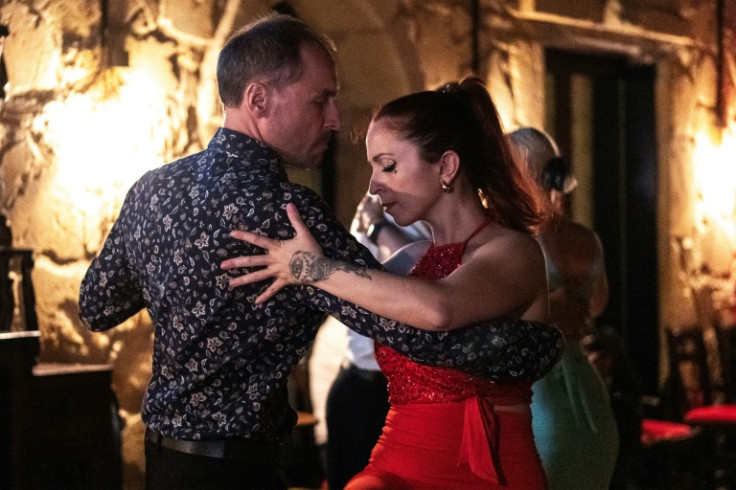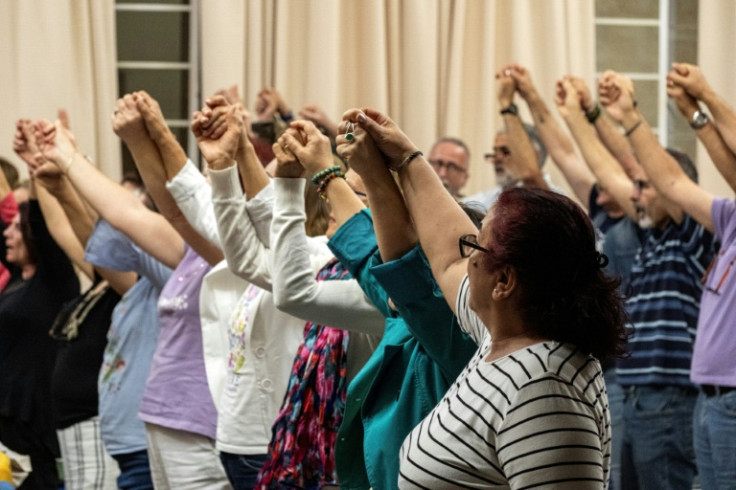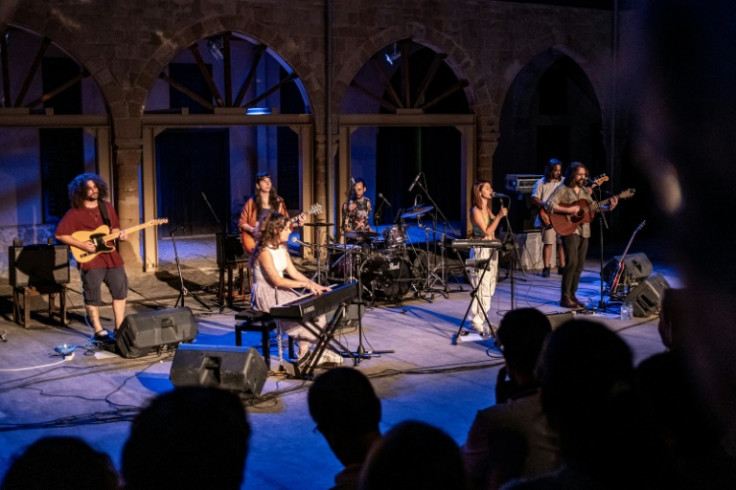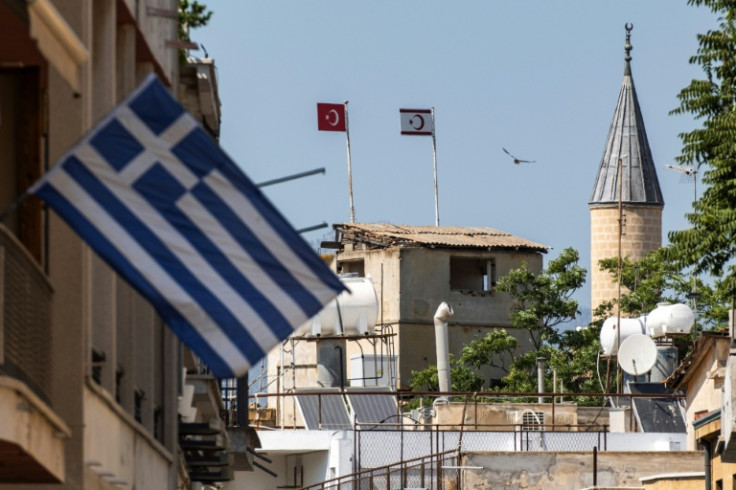
In Nicosia's old town, Alexis Sunder prepares for a concert with six other young Greek and Turkish Cypriot members of a band that aims to connect the residents of the divided island.
The Island Seeds were formed in 2022 in the capital's UN-guarded buffer zone, which slices across the Mediterranean island, and plays in the "prospect of a common future", the 36-year-old guitarist told AFP.
The group brings together the island's two biggest communities, which clashed violently for years until Cyprus was divided by a Turkish invasion in July 1974.
"It's a very sad year," the Greek Cypriot songwriter said, referring to the fiftieth anniversary of the division. But initiatives like theirs, he said, go "beyond the bi-communal character into a connection between musicians and humans".
This year marks five decades since an Athens-backed coup aimed at uniting Cyprus with Greece triggered the Turkish invasion that divided the island.
Cyprus has been split ever since, with the north of the island declaring independence in 1983 as the Turkish Republic of Northern Cyprus, a move recognised only by Ankara.
The government in the north insists on the international recognition of two separate states following decades of failed attempts at reunification, while the internationally recognised Republic of Cyprus still wants to reunite the island under a federal model.
Efforts to reunify the island have stalled since the last round of talks failed in 2017.
"When they get together and they play, they don't think about... the divide or the language, everything melts into the music," said Lefteris Moumtzis, 46, the group's manager and producer.
Ezgi Akgurgen, a 35-year-old Turkish Cypriot and lead singer of Island Seeds, said songwriting with the group was like working with "my therapist".
Around 40 people gather every Wednesday in the buffer zone in Nicosia's Ledra Palace, once a luxury hotel now home to the UN peacekeeping force first deployed to Cyprus in 1964 after the outbreak of severe intercommunal violence.
The choir's repertoire is a direct reflection of its mission: traditional Cypriot songs in Greek and Turkish that convey messages of brotherhood.
"We insisted on organising this choir because we believe that we could live together as we did before," said Demetra Payiata, a retired Greek Cypriot who has been a member of the Cyprus Bi-Communal Choir for Peace since its founding in 1997.
"We want peace and the reunification of our country," she told AFP at a rehearsal for the choir.
After decades of separation, "to come together is sort of political," said George Spyrou, 65, one of the choir's founders.
It allows them to "show people that we can still live together," said the Greek Cypriot retiree.
"In our choir, there is no 'You are Turkish, I am Greek.' We are Cypriots," added Zomrut Oral, a 52-year-old Turkish Cypriot architect.
Further north, the San Telmo bar brings together lovers of Latin dance from both sides of the island every Friday.
"Tango, it's a common language. It unites us", Christiana Neofytou, a Greek Cypriot, said from among the dancers twirling on the floor.
Kemal Baykalli, 48, said "the divisions are there, everybody's aware of this but this is one place where we don't think about these things."
"Tango reflects the kind of country we want to live in," the Turkish-Cypriot told AFP.
Activities that bring the two communities together "balance the negative propaganda and narratives from the conflict, where each side sees only their own as the victims," said Meltem Onurkan Samani, founder and general coordinator of the Cyprus Peace and Dialogue Centre.
But "it is not enough to sing and dance together to solve the Cyprus problem".
"We need to raise our voices to the level of all stakeholders and decision-makers for these activities to be truly effective on a political level and contribute to a solution," she told AFP.
The 55-year-old Turkish Cypriot said Cyprus's future hangs in the balance without a political solution.
"Without a settlement, things are vulnerable, and tensions could rise again," she said.










